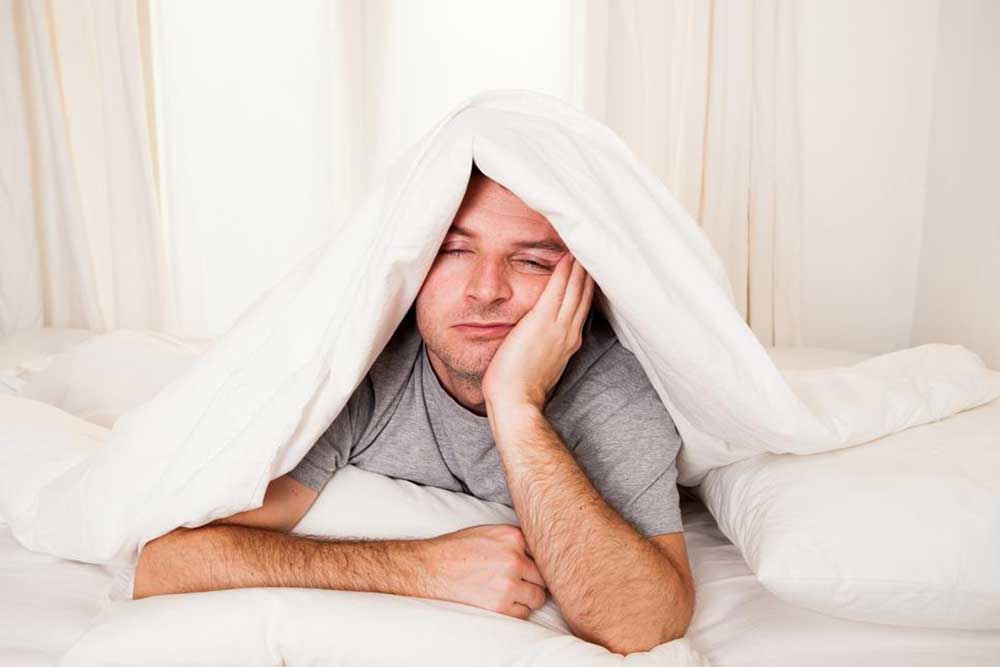In-Depth Exploration of Night Sweats: Causes, Symptoms, and Effective Management Strategies
Night sweats, medically known as nocturnal hyperhidrosis, can significantly impact sleep quality and daily life. This comprehensive guide explores the varied causes—from hormonal changes and infections to neurological conditions—and provides effective management strategies. Understanding the triggers and implementing lifestyle adjustments, environmental controls, and medical interventions can help alleviate symptoms. Whether caused by menopause, medication, or serious health issues, proper diagnosis and personalized treatment are essential. This detailed article offers valuable insights for anyone experiencing persistent night sweats, aiming to improve sleep, health, and overall well-being.

In-Depth Exploration of Night Sweats: Causes, Symptoms, and Effective Management Strategies
Night sweating, medically known as nocturnal hyperhidrosis, can significantly disrupt your sleep cycle and impact your overall health. Many individuals experience waking up drenched in sweat without an apparent reason, which can lead to discomfort, sleep deprivation, and a decrease in quality of life. While environmental factors such as a hot bedroom or thick bedding may contribute, numerous underlying medical conditions and lifestyle factors play a crucial role in causing night sweats. Recognizing these causes is essential for effective management and relief.
Understanding Night Sweats: What Are They?
Night sweats involve excessive sweating during sleep, often so intense that it soaks bedding and clothes. Unlike typical perspiration, which helps regulate body temperature, night sweats can be a symptom of deeper health issues. The phenomenon can lead to feelings of discomfort, dehydration, and interrupted sleep, making daily functioning challenging. It's important to identify whether these episodes are occasional or persistent, as the latter often warrants medical investigation.

Examining the common causes of night sweats provides insights into effective treatment options. Many factors contribute to this condition, from hormonal fluctuations to underlying serious health issues such as infections or cancers:
Menopause and Hormonal Fluctuations
During menopause, women experience hot flashes and night sweats due to significant hormonal changes, particularly the decline in estrogen levels. These symptoms can be intense enough to wake women up during sleep, often accompanied by flushing and rapid heartbeat.
Primary Hyperhidrosis
This idiopathic condition causes excessive sweating without an apparent underlying cause. When it manifests during the night, it can be particularly perplexing and disruptive, as it occurs without any obvious triggers.
Infections and Chronic Illnesses
Certain infections like HIV/AIDS, tuberculosis, and bacterial infections such as abscesses can lead to night sweats. Chronic illnesses such as endocarditis or osteomyelitis may also cause persistent sweating episodes during sleep.
Cancer and Malignancies
Night sweats are a common symptom associated with various cancers, especially lymphomas and leukemia. These can be coupled with other signs such as unexplained weight loss, fevers, and fatigue, prompting urgent medical assessments.
Medication Side Effects
Numerous medications, particularly antidepressants, are known to induce night sweats. Antidepressive drugs like SSRIs and SNRIs influence neurotransmitters and may interfere with body temperature regulation. Additionally, some hormonal therapies and blood pressure medications can have similar effects.
Blood Sugar and Metabolic Disorders
Hypoglycemia or low blood sugar levels, common in diabetics, can cause night sweats. Fluctuations in glucose levels disturb normal physiological processes, leading to sweating episodes during sleep.
Hormonal Imbalances and Thyroid Disorders
Conditions like hyperthyroidism accelerate metabolism and increase heat production, often resulting in night sweats. Pheochromocytoma and carcinoid syndrome, rare neuroendocrine tumors, are also involved in abnormal hormone secretion causing excessive sweating.
Neurological and Autonomic Nervous System Disorders
Neurological conditions affecting the autonomic nervous system, such as autonomic neuropathy and posttraumatic syringomyelia, can impair body temperature regulation and cause night sweats. Stroke patients may also experience sweating episodes during sleep due to nervous system disruptions.
Effective Strategies to Manage and Reduce Night Sweats
While night sweats can be distressing, multiple approaches can help alleviate their frequency and severity. Implementing lifestyle modifications, environmental controls, and medical interventions can significantly improve sleep quality and overall well-being. Consistency and patience are essential, as some causes may require medical diagnosis and treatment:
Identify and Avoid Triggers
Common triggers include smoking, spicy foods, caffeine, alcohol, stress, and tight-fitting clothing. Avoiding these can decrease the likelihood of night sweating episodes.
Optimize Bedroom Environment
Maintain a cool, well-ventilated sleeping area. Use fans or air conditioning to keep room temperatures comfortable, ideally between 60-67°F (15-19°C). Lower the thermostat and consider moisture-wicking bedding for enhanced comfort.
Create a Relaxing Bedtime Routine
Relaxation techniques such as meditation, deep breathing, and gentle stretching can calm your nervous system. Avoid screens and stimulating activities before bed to promote better sleep quality.
Engage in Regular Physical Activity
Daily exercise helps regulate body temperature and hormonal balance, potentially reducing night sweats. However, avoid vigorous activity close to bedtime, which may increase body heat and alertness.
Wear Appropriate Clothing and Bedding
Choose loose, breathable fabrics like cotton or linen. Dress in layers to easily adjust to changing body temperature during the night.
Utilize Cooling Devices
Fans, air conditioners, and cooling pillows can help maintain a comfortable sleep environment. Flip your pillow regularly to distribute moisture evenly and stay dry.
Maintain a Healthy Weight and Lifestyle
Excess weight can influence body temperature regulation and stress levels. Losing weight through a balanced diet and exercise can reduce night sweat episodes.
Stay Hydrated
Dehydration can exacerbate night sweats, so drink plenty of water throughout the day. Consider mineral water which replenishes electrolytes lost through sweating.
Eat a Nutrient-Rich, Balanced Diet
Incorporate foods high in vitamins, minerals, and healthy fats. Plant-based diets rich in fruits, vegetables, and whole grains can support hormonal balance and overall health.
Consult a Healthcare Provider
If night sweats persist, worsen, or are accompanied by other symptoms such as weight loss, fever, or fatigue, seek medical evaluation. Underlying conditions may require targeted treatment, including medication adjustments or specific therapies.
In conclusion, night sweats are a multifaceted condition influenced by hormonal, infectious, and neurological factors. While they are often benign, persistent or severe episodes merit medical attention to rule out serious underlying diseases. By adopting lifestyle changes, maintaining a healthy environment, and seeking appropriate medical care, individuals can significantly reduce the impact of night sweats and enjoy restful, uninterrupted sleep. Awareness and proactive management are key to improving quality of life and overall health outcomes.





